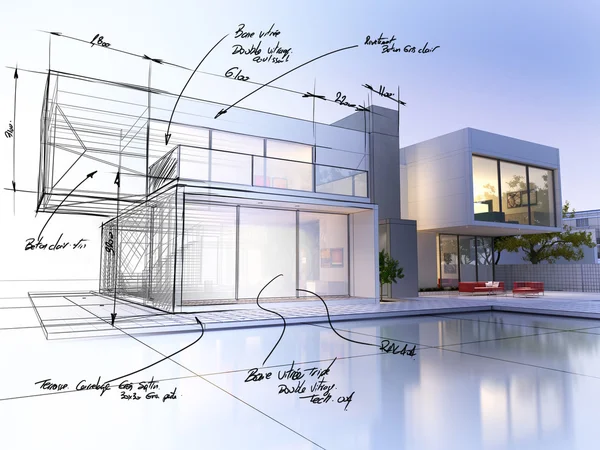
How to choose a structural engineer for your building project
There are many benefits to appointing a Structural Engineer early on in your project. For example, it allows for maximum collaboration with the architect and the builder, as well as with you, the client. This will ensure your project takes into consideration a range of criteria such as ease and speed of construction, materials, cost, etc. Often, when people find that they need a structural engineer, they are at a loss and may not know where to look, what to look for or what to ask.
So, what should you look for in a Structural Engineer?
Here are our top tips to consider in order to answer this question.
- Look for extensive, recent and successful experience of working on similar projects
This is important as it gives an indication that the engineer’s skill set and knowledge base is in tune with the scale and scope of your project. It will lead to a more suitable, efficient and cost-effective design, saving you time and money. Look at their previous projects, references & testimonials. Most Structural Engineers will advertise past projects on their websites, so that is a good place to start. Look for projects at a similar scale to yours, and relevance to what you would be asking them to do. If they mainly showcase their larger commercial clients, there’s a chance they may over-charge you if they are trying to focus away from smaller projects.
- Look for recommendations from the right places
It is wise to go with a Structural Engineer who is recommended, either by friends and family who have had work done, or from a trusted industry directory. The Institute of Structural Engineers, (IStructE) has a good search function on their website: visit findanengineer.com to find one of their affiliated Structural Engineers, all of whom have committed to following the Institute’s high standards. You can also ask your Architect for a recommendation. Some architectural practices have engineers in-house, but most will use independent companies.
Searching for where the company appears online may also reveal their reputation and past accolades, but also historical stories they may rather not advertise.
- Previous interaction/ working relationship with your Architect and/or Builder
When the team members understand and trust each other, they work better together to create the best possible end result for you. However, even if the engineer hasn’t worked with your architect or builder before, it’s important to check they’ll take a proactive and flexible approach so that everything runs smoothly.
- Communication skills and delivery of their promises
Prompt and effective communication is essential for projects to run smoothly. If you’re constantly having to chase an engineer just to obtain a quote for your project, then it’s not a good sign. Similarly, do they have a track record for doing what they say they’ll do, such as issuing information to building control or the builder on time?
Have a look at their online reviews or talk to previous clients to see how reliable they really are.
- Always look for a structural engineer with the proper qualifications
If you’re hiring a structural engineer, you should seek one who is professionally qualified: that is either a Chartered, Technician or Associate-Member of the Institution of Structural Engineers (FIStructE, MIStructE, AIStructE, TIStructE, AMIStructE) and/or registered CEng, IEng or EngTech with the Engineering Council.
Being Chartered by the Institution of Structural or Civil Engineers indicates a high level of skill and competence gained through many years of practical experience. Having a chartered engineer involved to check your design will help ensure all the information issued to building control and your builder is of a high standard. On the domestic scene, most mortgage companies and buildings insurers will accept either qualification.
- Good value for money
Like most things in life you get what you pay for. Check that the engineer provides a service which is comprehensive but allows for some flexibility. Working with you and your team, a good engineer will also try to minimise the potential for problems on-site. This will help you to avoid costly redesigns once work starts on site. When considering quotes from different engineers, it’s worth making sure that you look at the complete service rather than the headline figure. This way you will compare apples with apples and can make an informed decision.
- Work with the builder to develop a safe construction method and a realistic programme
The engineer’s job doesn’t finish when the calculations and drawings have been issued. They should also work with your builder to ensure the design can be built safely, cost-effectively, and on time. A good one will also identify any potential construction challenges before advising on any temporary work (such as temporary supports to existing walls) to keep everyone safe.
- Professional Indemnity Insurance
Check your engineer has sufficient PII to cover the cost of the structural components of your project. This means you’ll be protected in the highly unlikely event there’s a problem with the design.Professional Indemnity Insurance (or PII, for short) is something you’ll hopefully never need, but you’d be mad not to have it.
Finally, it’s important to find out how the engineer calculates their fees and what extras might need to be included in order to make a wholistic judgement. Structural Engineer costs may vary significantly, but you should ask specifically about which additional Structural Engineer fees may not be included. These could be additional site visits, additional drawings and the final report itself, which you may need for your mortgage company, investor, insurer or HSE requirements.

